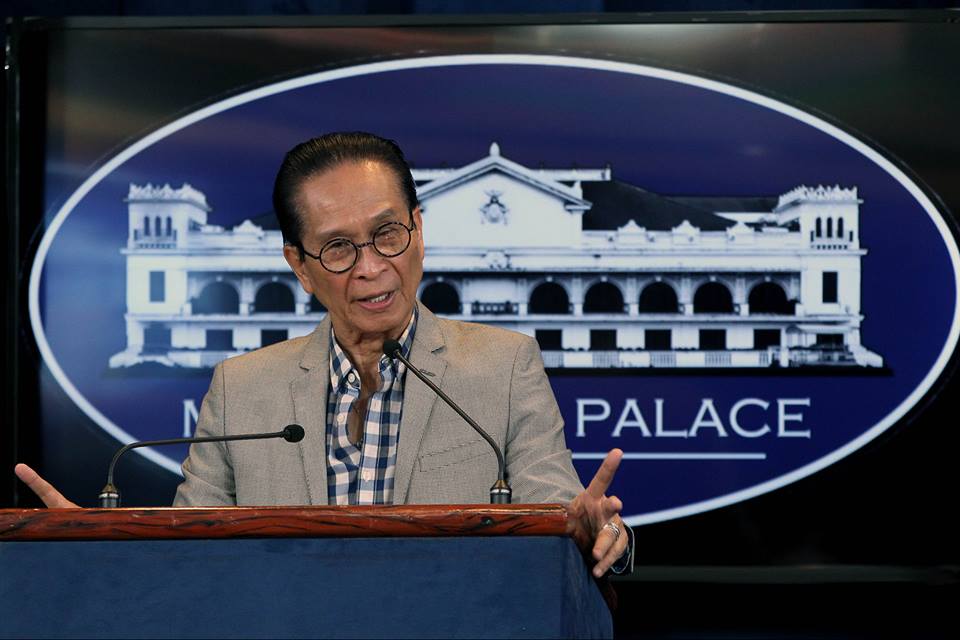News
Palace wants better disaster resilience 5 years after ‘Yolanda’

FILE: Presidential Spokesperson and Chief Presidential Legal Counsel Secretary Salvador S. Panelo holds a press briefing for the Malacañang Press Corps (MPC) at the New Executive Building (NEB) in Malacañang. (Photo: Office of the Presidential Spokesperson/Facebook)
MANILA — Five years after Typhoon Yolanda (Haiyan), the deadliest typhoon to hit the Philippines, Malacañang on Wednesday renewed its call for the passage of better disaster resilience measures to reduce the risks of climate change and respond to the needs of calamity victims.
Presidential Spokesperson Salvador Panelo made this remark a day before the commemoration of the fifth anniversary of the super typhoon that had left thousands dead and many more injured.
“Tomorrow, Nov. 8, we join the entire country in commemorating the fifth anniversary of Super Typhoon Yolanda (Haiyan),” Panelo said in a press statement.
“Yolanda’s” anniversary, he said, is also the perfect opportunity to spread better awareness on climate change and its impact on communities.
“There is no perfect time to push for better disaster resilience measures than now,” Panelo said. “Let us continue to join hands to reduce the risks of climate change in the country and attain a more adaptive and disaster-resilient Philippines.”
He thanked the House of Representatives for approving on third and final reading House of Representatives Bill No. 8165, otherwise known as the Department of Disaster Resilience Act, and expressed hope that the Senate would follow suit.
Last July, the Palace, through the Presidential Legislative Liaison Office (PLLO), transmitted to both houses of Congress a bill creating the Department of Disaster Resilience (DDR).
Duterte earlier mentioned this in both his 2017 and 2018 State of the Nation Addresses (SONA).
Hard lessons
Meanwhile, Panelo thanked those who were on the front lines, including nations, agencies, and organizations that helped the country, and at the same time commended Filipinos’ resilience in the face of adversity.
He noted that the super typhoon has taught the government a hard lesson in public service, particularly on “the need to respond to our people’s plight with more compassion and urgency.”
“This is why the Duterte administration has worked harder to fast-track the recovery efforts for Yolanda survivors,” Panelo said.
As of Dec. 31, 2017, the Presidential Assistant for Special Concerns, the oversight official for the “Yolanda” rehabilitation project, reported that a total of PHP146.156 billion was released to implementing national government agencies, government-owned and-controlled corporations and local government units.
Half of the funds released were allotted for housing programs and ancillary basic utilities.
As of Oct. 30 this year, a total of 100,709 out of the 205,128 permanent housing targets for “Yolanda” have been completed; 46,412 have already been occupied; while 54,297 are ready for occupancy, according to the National Housing Authority (NHA).
Panelo said the government is also addressing issues on the delay of resettlement, which include limited availability of titled lands for resettlement, slow processing and issuance of permits and licenses for construction projects, and absence of sustainable livelihood opportunities.
Moreover, the finance and social welfare departments are now drafting a joint order to create a one-stop shop facility for relief consignment.





















